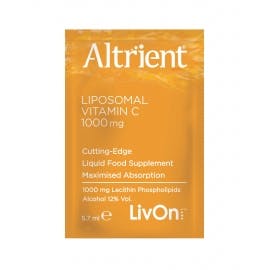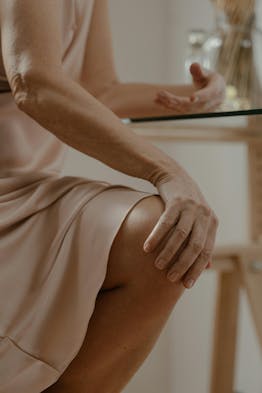Unlocking Hair Health: Clinical Insights on Altrient Liposomal Vitamin C
An independent 12-week study was conducted to observe and measure the effects of a daily liposomal Vitamin C supplement on the characteristics of hair.
A clinical study was conducted in 2023 by Princeton Consumer Research to explore the relationship between supplementation with Altrient® C and the physical properties of hair. The study aimed to objectively measure various parameters of hair over a 12-week period.
While Vitamin C is best known for its role in immunity, it also performs other important functions in the body. It is a well-established antioxidant that contributes to the protection of cells from oxidative stress. Oxidative stress is a factor that can affect cells throughout the body, including those in the skin and scalp. Furthermore, Vitamin C contributes to normal collagen formation for the normal function of the skin, and a healthy scalp is an important foundation for hair.
Participants and Study Design
- Participants: The study included 15 healthy female subjects aged 18 or older.
- Method: Each subject consumed 2 sachets of Altrient® C daily for 12 weeks.
- Evaluation: Assessments were performed at the start of the study and after 12 weeks using three methods: Clinical Expert Grading, instrumental analysis (including macrophotography and a Brush Friction Count Method), and a Self-Perception Questionnaire.
Objective Findings
The 12-week study recorded statistically significant improvements in parameters related to hair strength and condition, supporting the potential benefits of Altrient® Liposomal Vitamin C on hair health. Instrumental measurements and clinical grading identified the following outcomes:
- Hair Thickness & Condition:
o A +20.21% average increase was measured in the thickness of hair.
o A +30.21% average increase was recorded in scores for general hair condition and feel.
o A +25.00% average increase was noted in scores for healthy hair appearance.
- Hair Breakage & Damage:
o A -50.89% reduction in the number of broken hairs collected during standardized brush
friction tests was recorded.
o Clinical grading showed a -27.66% reduction in the appearance of hair damage.
- Hair Count:
o Analysis using macrophotography indicated an average increase in hair count of +18.93%.
_1.png)
.png)
Participant Self-Perception Questionnaire Feedback
In addition to instrumental measurements, participants were asked for their subjective opinions on their hair and skin. The following percentages reflect the participants who agreed or strongly agreed with these statements after 12 weeks:
- Regarding Hair Appearance and Feel:
o 93% agreed their hair looked more lustrous overall.
o 87% agreed their hair felt thicker overall.
o 87% agreed their skin felt smoother.
o 100% agreed their skin felt more hydrated.
- Regarding Hair Breakage and Fullness:
o 73% agreed their hair breakage had decreased.
o 67% reported a decrease in hair shedding.
o 87% reported a reduction in the appearance of hair thinning.
o 73% found their scalp less visible along the hairline and when they wore their hair up.
Scientific Context
Vitamin C’s fundamental role in collagen synthesis is essential for hair and skin structure. The liposomal delivery system used in Altrient® C enhances absorption and bioavailability, potentially supporting these biological functions to improve hair condition and skin health.
Conclusion
This clinical study provides evidence that daily supplementation with Altrient® Liposomal Vitamin C over 12 weeks supports measurable and subjectively perceived improvements in hair strength, growth, and appearance, alongside benefits in skin hydration and texture. These results add to the body of research exploring the connection between targeted nutrition and the visible characteristics of hair and skin.
Participant Perspectives: Beauty from the Inside Out
The highly positive feedback from the study participants aligns with the objective measurements recorded. A significant majority reported favourable changes in how their hair and skin looked and felt. Many participants expressed that their hair appeared more lustrous and felt thicker, while noting their skin felt smoother and more hydrated. These personal experiences, when viewed alongside the clinical data, support the principle that nourishing the body on the inside can be reflected in the outward appearance of hair and skin..
.png?auto=format&q=45&w=848&trim=auto&git=crop)
.png)



